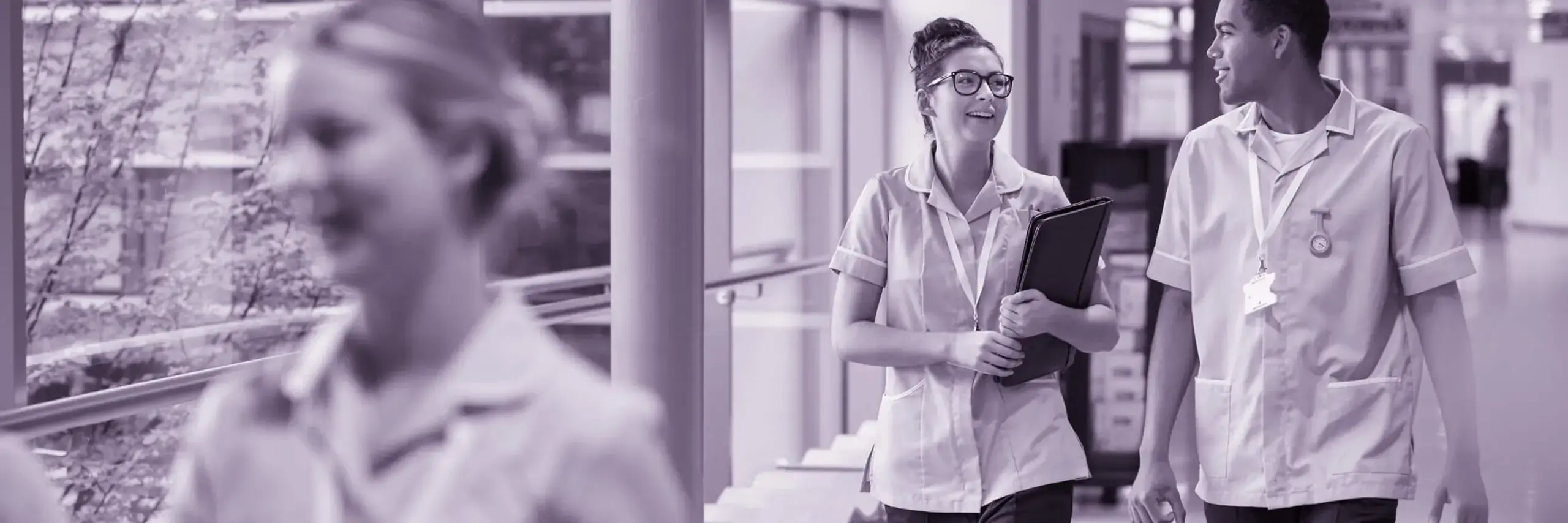Main content
Understanding judgement with relational regulation
22 Jul 2021
We recently published a report that we had commissioned from Professor Deborah Bowman, Ethics in extraordinary times - practitioner experiences during the pandemic. We commissioned Professor Bowman to explore the ethical experiences of practitioners working in health and social care professions during the Covid-19 pandemic. She conducted a literature review, and held interviews and focus groups with practitioners from a range of professions. In this blog I have focused on just one of many issues that arise from the report, that of the role professional judgement, and suggest that ‘relational regulation’ may offer us a way to explore it further.
Why did we commission this research?
The pandemic has meant that health and care practitioners have had to make decisions under circumstances they have not experienced before. They have had to make hard choices, under pressure with long-lasting personal impacts on patients and their families and those who have had to make them. It is important to study how these circumstances have affected professionals on an individual level in order to consider how regulators may learn from their experiences, and help to support ethical capability and confidence.
Identifying and supporting the role of judgement
One of the central issues that came through Professor Bowman’s report was the role of judgement in steering professionals through the many difficulties that were faced. Both interviews and focus groups had spent time exploring what judgement means and whether it is sufficiently ‘considered, articulated and valued within professions and by regulators’.
Different perspectives were offered by interviewees on the components of judgement. Some saw the concept of judgement as useful to regulators but unhelpful to professionals, with one arguing that it ‘is a word that means nothing except when you get it wrong. It’s a way to dodge giving any help with the really hard stuff’ (p.34). Another said ‘it’s a cop out” and characterised the regulator’s position as ‘we’ve given you the guidance, it’s your job to work it all out and decide how to do it’ (p.34).
However others offered a different perspective, one saying that ‘A regulator can't, can't spoon feed your profession that's supposed to be autonomous. Set the parameters, and then it's up to the practitioners…to develop ways of coping with this situation’ (p.34). Another surmised that ‘we aren’t great at judgement’. There was also a range of opinion and comment about the focus, content and helpfulness of the guidance produced by regulators during the pandemic, and therefore the role of judgement in interpreting and applying it.
Given the range of views expressed on this crucial element of regulators work, it was a welcome recommendation of the report that we should ‘review whether the concept of judgement is well-articulated, modelled and supported in ethical guidance and resources’ (recommendation 2, page 45 of the report).
A similar area of discussion had emerged from our Covid Learning Review earlier in the year. We recognised there the challenges posed to both registrants and regulators. Registrants were faced and continue to be faced with direction, guidance and advice from many sources, not all of which may point quite in the same direction. Regulators had to decide where were the priority areas in which guidance should be given, avoiding unnecessary duplication, pointing to the advice of others where appropriate, and avoiding pressure to be directional where it was not appropriate that they be so.
For example, the General Osteopathic Council in its case study on producing Covid-specific guidance (Covid Learning Review, case study 14 page 72) said that they ‘they found that individuals wanted a definite answer as to whether osteopathic practice could continue, but it came down to clinical judgement and responsibility. The GOsC was aware that this is a difficult message to deliver when osteopaths were deciding whether to keep a practice open’.
Bridging the gap with relational regulation
An approach to exploring the role of judgement could be offered by the idea of relational regulation. This is sometimes used to mean to those aspects of regulation concerned with stakeholder engagement and relationships and how those relationships are managed. But its original meaning was set out by Professor Ruthanne Huising and Susan Silbey for example in Governing the Gap: Forging Safe Science through Relational Regulation (2011)*, and is concerned with bridging the gap between regulatory standards and everyday practice.
The authors set out a series of four steps to explore the relationship between the two. Below, I have quoted the four steps, together with my brief interpretation of how we might understand them here:
- ‘Narrating the gap’ – defining the scope of both guidance and the area of activity intended as its focus;
- ‘Inquiring without constraint’ – asking questions freely to understand the ways in which they relate to each other;
- ‘Integrating pluralistic accounts’ – seeking to understand different perspectives from different sources;
- ‘Crafting pragmatic accommodations’ – finding realistic ways to proceed.
This structure, the authors suggest, keeps ‘activities within an acceptable range of variation, close to compliant with regulatory specifications’.
Clearly this is not a description of the everyday processes by which judgement is applied, of which much is unconscious and intuitive. But it may provide a way to learn about and understand those processes. It appears to me that the four steps of relational regulation would provide the basis for further study of judgement, taking a number of scenarios that arise or have arisen in the pandemic, and tracing out the relationship between available guidance and how it was understood, interpreted and applied. In turn, this could offer insights into how professional judgement operates in daily working life, and the role of regulators in supporting it.
Footnote
* Regulation & Governance (2011) 5, 14–42



